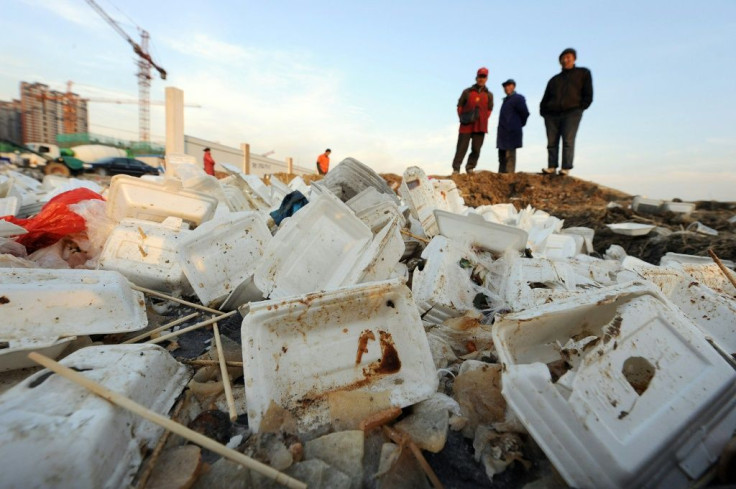Researchers Find Beetle Larvae That Can Consume, Decompose Polystyrene
KEY POINTS
- Researchers identified the larvae of a beetle species that can consume and decompose polystyrene
- The larvae survived for two weeks consuming Styrofoam
- The creatures' gut flora also oxidized and changed the properties of polystyrene
The larvae of a certain beetle species can actually consume and decompose polystyrene, says a recent study. This could help find possible solutions to the global plastic waste crisis.
Polystyrene is a versatile type of plastic used to make various consumer products. One of the most common uses of polystyrene is when it is made into a foam material called expanded polystyrene (EPS), which many people use for various things including helmet interiors and food containers.
However, polystyrene is also very difficult to biodegrade because of its molecular structure. In fact, polystyrene accounts for 6% of the total plastic pollution.
In a new study, published in the journal Applied and Environmental Microbiology, researchers from Pohang University of Science and Technology (POSTECH) and Andong National University in South Korea have reported the ability of the Plesiophthophthalmus davidis larvae to decompose polystyrene. P. davidis is a darkling beetle species that can be found in East Asia, including the Korean Peninsula.
The researchers found the larvae were able to survive for 14 days by only feeding on Styrofoam, a trademarked brand of EPS. The researchers were also able to confirm, through infrared spectroscopy, that the isolated gut flora of the larvae actually oxidized and changed the property of polystyrene film.
Further, when researchers isolated the Serratia species in the larvae's gut flora, they found the Serratia increased by six-fold after the two-week Styrofoam diet.
"This suggests that P. davidis larvae and its gut bacteria could be used to chemically modify and rapidly degrade PS," the researchers wrote. PS stands for polystyrene.
The gut flora of the species is quite simple, consisting only of less than six bacteria species compared to that of other polystyrene-degrading insects.
"We have discovered a new insect species that lives in East Asia — including Korea — that can biodegrade plastic through the gut flora of its larvae," corresponding author Professor Hyung Joon Cha said in a statement. "If we use the plastic-degrading bacterial strain isolated in this study and replicate the simple gut floral composition of P. davidis, there is the chance that we could completely biodegrade polystyrene, which has been difficult to completely decompose, to ultimately contribute to solving the plastic waste problem that we face."
In 2017 alone, the world produced 8.3 billion tons of plastic waste, less than 9% of which was recycled. The rest would need decades or even centuries before they decompose.
This was not the first study to describe plastic-eating insects. Earlier this year, a study also described how "superworms" can eat and live well with a diet solely comprised of Styrofoam. These studies, apart from significantly reducing plastic usage, could also help contribute to solving the global plastic waste crisis.

© Copyright IBTimes 2024. All rights reserved.






















